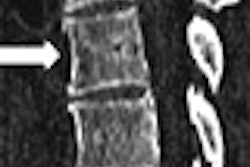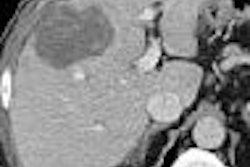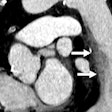In efforts led by regional intermediary carriers, the U.S. Centers for Medicare and Medicaid Services (CMS) is taking baby steps to broaden virtual colonoscopy reimbursement on a regional level in the U.S. Even under the new rules, the reimbursement criteria would remain quite exclusive -- any reimbursed VC exam would still be undertaken for diagnostic purposes and not screening, for example.
But considering the dim prospects for quick action on a national coverage decision that would cover VC (or CT colonography) as a cancer screening option, the efforts of a few local carriers represent progress of a sort for virtual colonoscopy.
In the Midwest, yesterday marked the last of four advisory committee meetings held under the auspices of Medicare Part B contractor Wisconsin Physicians Service Corporation of Madison to discuss its draft local coverage decision (LCD) with interested parties. In Wisconsin (May 6), Michigan (May 11), Minnesota (May 12), and Illinois (May 25), participants weighed the effects of the policy proposal.
"CT colonography (VC) is only indicated in those patients in whom a fiberoptic colonoscopy of the entire colon is incomplete due to an inability to pass the colonoscope proximally," the draft LCD states. "Inability to advance the colonoscope may be secondary to an obstructing lesion, stricture, muscle spasm, redundant colon, diverticulitis, extrinsic compression, or aberrant anatomy from prior surgery."
Diagnostic VC would also be reimbursed when colonoscopy is complete but a submucosal abnormality has been detected during the conventional exam.
Currently Medicare reimbursement in most of the U.S. (Medicare Coverage Database - letter "V") is limited to a CT examination only in the event optical colonoscopy is incomplete "due to an obstructing neoplasm," or is specifically excluded in the local coverage decision. Barium enema is the only recommended and reimbursed imaging test in such circumstances. VC performed after other, noncancerous obstructions preventing colonoscopy, with the possible exception of a benign obstructing tumor such as a large lipoma, is not covered.
As U.S. providers know, screening services are not a covered Medicare benefit under Section 1862 (a)(7) of the Social Security Act regardless of the efficacy of the test. Special legislation is required to add a specific screening test. Adding VC as a colorectal screening tool would require either a change in the act, or modification of 42 CFR 410.37 (a)(1), which defines the tests that may be utilized for colorectal cancer screening.
A few third-party payors, notably in Wisconsin, are paying for screening VC, and more are expected to sign on as the noninvasive procedure gains traction among patients and referring physicians.
Regional push for diagnostic flexibility
Midwestern carriers aren't alone in their efforts to broaden coverage criteria. Since January 15, 2005, following a similar regional coverage initiative, New England Medicare has permitted reimbursement after failed conventional colonoscopy for any reason.
Under the rule, Maine, Massachusetts, New Hampshire, and Vermont (and a separate New York LCD) do not exclude coverage for failed screening colonoscopy, as long as the subsequent CT colonography exam is medically necessary. Coverage in the Midwest would be limited to failed diagnostic colonoscopy.
Medicare reimbursement after failed optical colonoscopy is also on the table in Tennessee, California, and perhaps elsewhere. Change at the state and regional levels represents the best hope for more inclusive coverage in the near future, many VC advocates believe.
At the same time, the lack of standardization ensures that modifications will be needed before some of the drafts become settled policy. The Midwest LCD's exclusion of VC after failed screening colonoscopy was a case in point.
"The (proposed Midwest) rule makes very little sense to me," commented Dr. Matthew Barish, associate professor of radiology at Boston's Brigham and Women's Hospital, in an e-mail message to AuntMinnie.com.
"They are setting up a different standard for failed colonoscopy depending on what the indication for the original optical colonoscopy was done for," Barish wrote. "If it was done for screening, they expect completion to be done by barium enema, but if the original optical colonoscopy was done for diagnostic purposes, they expect a VC to be done, even if the reason for the failed optical colonoscopy was an obstructing colon cancer. This is a very strange policy. I believe it must be a misinterpretation of the New York and New England policies, which are meant to exclude screening VC as an alternative to optical colonoscopy, not prevent VC following a failed screening optical colonoscopy."
The proposed Midwestern LCD isn't set in stone, however. A public comment period begins today and continues until July 9.
Moreover, the complete exclusion of screening indications isn't an insurmountable barrier for many patients who need a colorectal exam. Symptoms ranging from blood in the stool to a change in bowel habits would represent appropriate conditions for VC after failed optical colonoscopy. Still, those with a family or personal history of colorectal polyps or cancer would not qualify.
Another disappointment is that the proposed LCD "won't seem to cover patients who are 'unfit' for optical colonoscopy, such as those on anticoagulation, sedation risk, prior perforation ... etc." commented Dr. Perry Pickhardt, associate professor of radiology at the University of Wisconsin Medical School in Madison.
As for relying on the decisions of local carriers, the practice isn't unusual. In fact it's the norm, a CMS spokesman told AuntMinnie.com. Absent a national coverage decision, most Medicare coverage falls under the discretion of local carriers, he said.
"The reason is that medical practice varies across the country, and Congress wanted us to honor local medical practice," he explained. Most drug coverage decisions are made locally, he said, and in the case of procedures, "there might be a surgical procedure that a lot of guys in New York do, and nobody in Arizona does."
By Eric Barnes
AuntMinnie.com staff writer
May 26, 2005
Related Reading
VC practice thrives in Wisconsin, May 10, 2005
VC billing: Still hazy after all these years, November 19, 2004
VC gets long-awaited reporting standards, November 2, 2005
Copyright © 2005 AuntMinnie.com



















